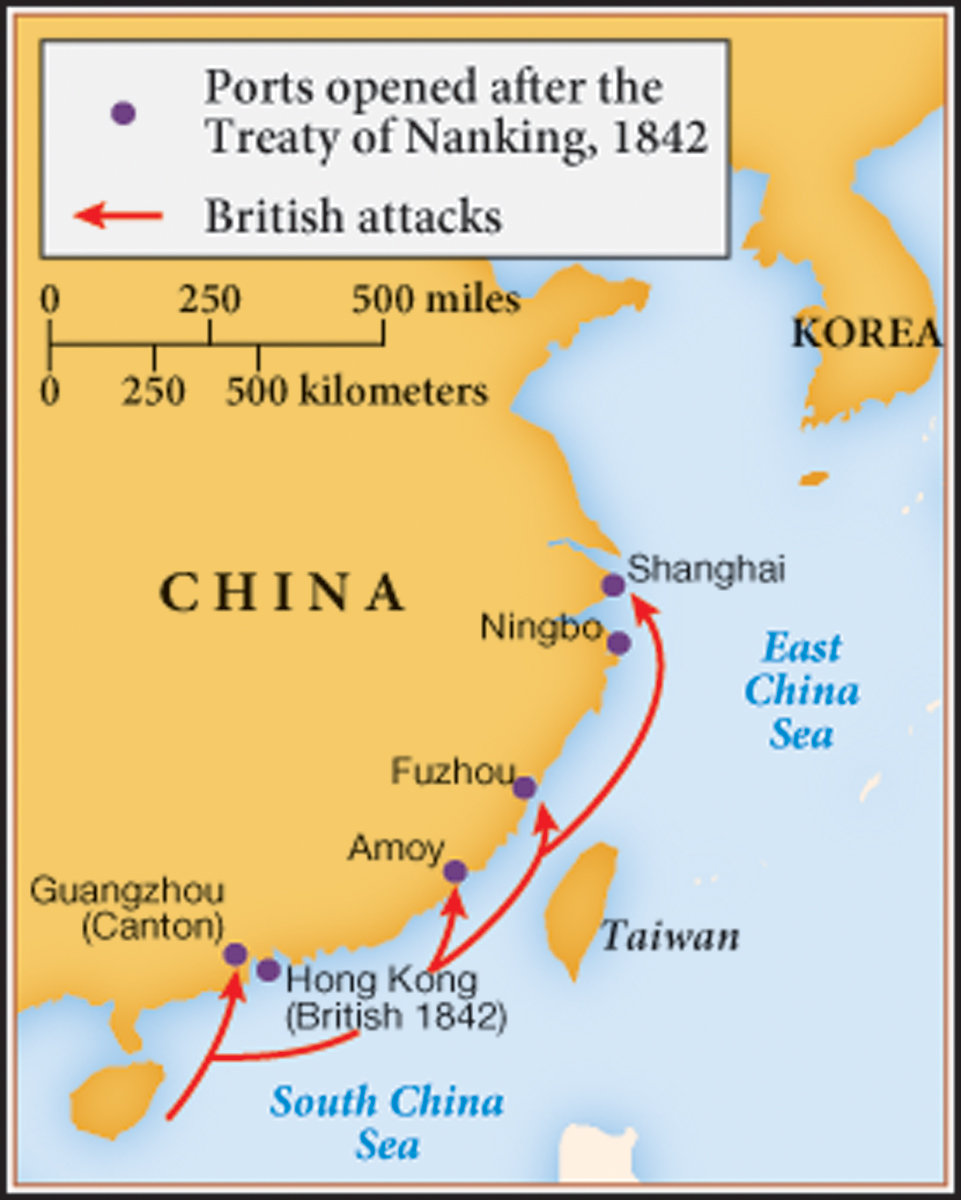Abuses and Reforms Overseas
Printed Page 689
Important EventsAbuses and Reforms Overseas
Like the ideal of domesticity, the ideal of colonialism often conflicted with the reality of economic interests. In the first half of the nineteenth century, those economic interests changed as European colonialism underwent a subtle but momentous transformation. Colonialism became imperialism—a word coined only in the mid-nineteenth century—as Europeans turned their interest away from the plantation colonies of the Caribbean and toward new colonies in Asia and Africa. Colonialism had most often led to the establishment of settler colonies, direct rule by Europeans, the introduction of slave labor from Africa, and the wholesale destruction of indigenous peoples. In contrast, imperialism usually meant more indirect forms of economic exploitation and political rule. Europeans still profited from their colonies, but now they also aimed to re-form colonial peoples in their own image—when it did not conflict too much with their economic interests to do so.
Colonialism—as opposed to imperialism—rose and fell with the enslavement of black Africans. British religious groups, especially the Quakers, had taken the lead in forming antislavery societies. They gained a first victory in 1807 when the British House of Lords voted to abolish the slave trade (though not the institution of slavery itself). British reformers finally obtained the abolition of slavery in the British Empire in 1833. Antislavery petitions to Parliament bore 1.5 million signatures, including those of 350,000 women on one petition alone. In France, the new government of Louis-Philippe took strong measures against clandestine slave traffic, virtually ending French participation during the 1830s. Slavery was abolished in the remaining French Caribbean colonies in 1848.
Neither slavery nor the slave trade disappeared immediately just because the British and French had given it up. Because of increased participation by Spanish and Portuguese traders, almost as many slaves were traded in the 1820s as in the 1780s and the overall traffic did not dwindle until the 1850s. Human bondage continued unabated in Brazil, Cuba (still a Spanish colony), and the United States. Some American reformers supported abolition, but they remained a minority. Like serfdom in Russia, slavery in the Americas involved a quagmire of economic, political, and moral problems that worsened as the nineteenth century wore on.
Despite the abolition of slavery, Britain and France had not lost interest in overseas colonies. Using the pretext of an insult to its envoy, France invaded Algeria in 1830 and, after a long military campaign, established political control over most of the country in the next two decades. By 1848, more than seventy thousand French, Italian, and Maltese colonists had settled there with government encouragement, often confiscating the lands of native peoples. In that year, the French government officially incorporated Algeria as part of France. France also imposed a protectorate government over the South Pacific island of Tahiti.

Although the British granted Canada greater self-determination in 1839, they extended their dominion elsewhere by annexing Singapore (1819), an island off the Malay peninsula, and New Zealand (1840). They also increased their control in India through the administration of the East India Company, a private group of merchants chartered by the British crown. The British educated a native elite to take over much of the day-to-day business of administering the country, and they used native soldiers to augment their military control. By 1850, only one in six soldiers serving Britain in India was European.
REVIEW QUESTION In which areas did reformers trying to address the social problems created by industrialization and urbanization succeed, and in which did they fail?
The East India Company also tried to establish a regular trade with China in opium, long known for its medicinal uses but increasingly bought in China as a recreational drug. The Chinese government forbade Western merchants to venture outside the southern city of Guangzhou (Canton) and banned the import of opium, but these measures failed. By smuggling Indian opium into China and bribing local officials, British traders built up a flourishing market, and by the mid-1830s they were pressuring the British government to force an expanded opium trade on the Chinese. When the Chinese authorities expelled British merchants from southern China in 1839, Britain retaliated by bombarding Chinese coastal cities. The Opium War ended in 1842, when Britain dictated to a defeated China the Treaty of Nanking, by which four more Chinese ports were opened to Europeans and the British took sovereignty over the island of Hong Kong, received a substantial war indemnity, and were assured of a continuation of the opium trade. In this case, reform took a backseat to economic interest, despite the complaints of religious groups in Britain.